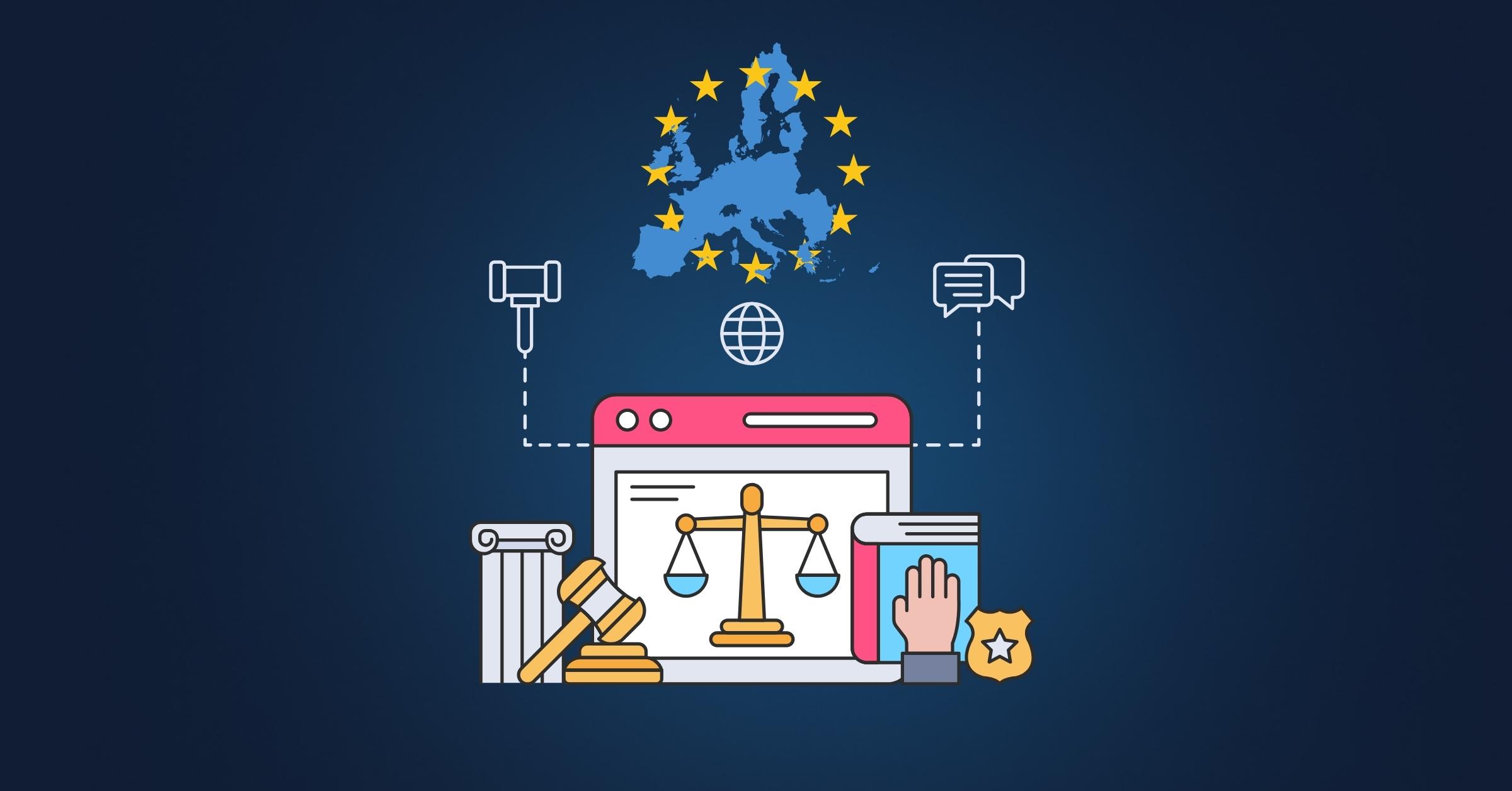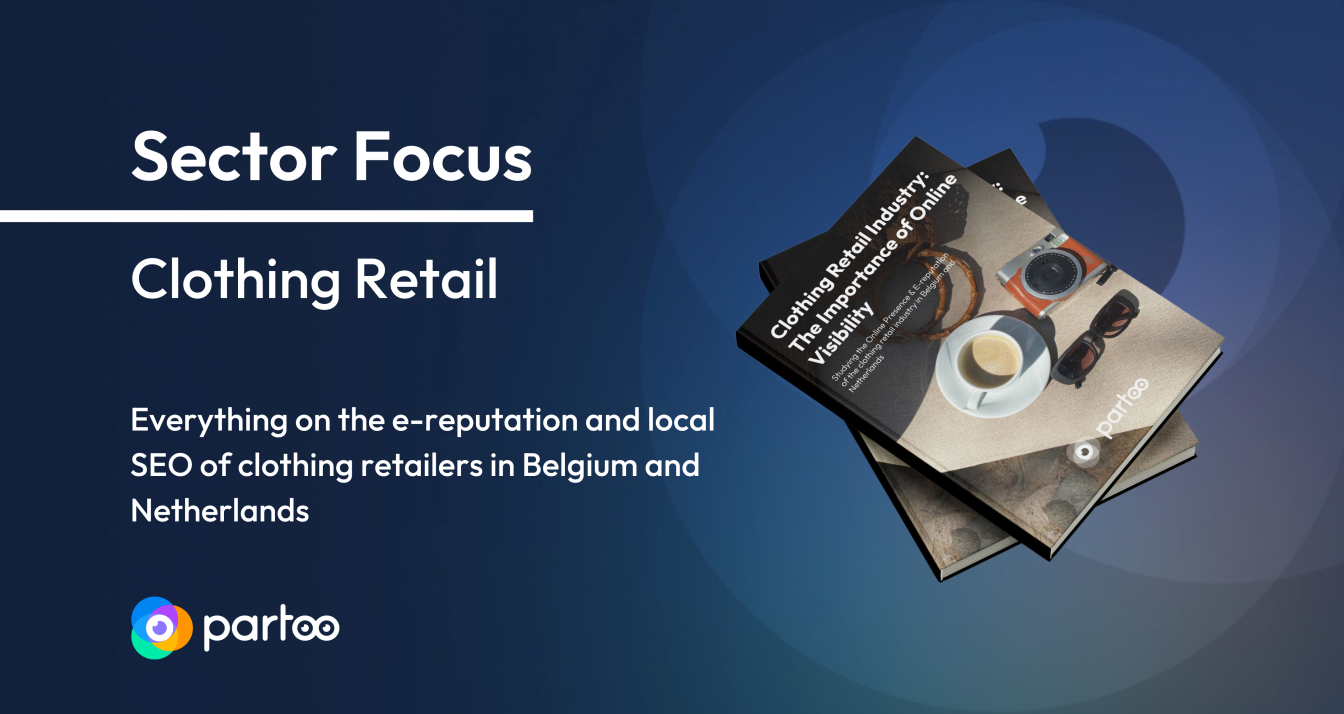
Saudi Arabian Restaurants : The Importance of Online Visibility
Are the food service sector in the Kingdom of Saudi Arabia managing their e-reputation well?…

Table of contents
The digital landscape is rapidly evolving. With our personal and professional lives happening increasingly online, the EU has identified a greater need for regulation to protect consumers and ensure fair competition. This has led to two major new pieces of legislation: the Digital Services Act (DSA) and the Digital Markets Act (DMA).
The DSA and DMA aim to create a safer and more accountable online environment for users, while also fostering innovation and competitiveness. The regulations establish clear responsibilities for online platforms to deal with illegal content and products, disinformation, and other societal issues. There is also a focus on transparency, with reporting requirements and oversight mechanisms.
As we’ve seen recently with TikTok’s €345 million fine — there are additional obligations for very large online platforms — around algorithms, content moderation, and data access. These “gatekeeper” platforms will have dos and don’ts they must comply with to ensure fair conditions for businesses, developers and consumers who rely on them. Violations could lead to fines of up to 10% of annual global turnover.
The new frameworks mark an important milestone in regulating the digital space. As online activity continues to grow, rules that protect users’ rights and interests are essential. For businesses and platforms operating in Europe, understanding these regulations will be key. Compliance opens opportunities, while violations risk significant penalties.
This article explores what is changing under the DSA and DMA, and the impacts on local search, online advertising, content moderation and more. Read on for an in-depth look at how these regulations will shape the future of digital services in the EU and beyond.
The Digital Services Act (DSA) establishes ground rules for digital service providers operating in the EU. Its core aims are to create a safer online space and hold platforms accountable for managing illegal and harmful content.
To comply with DSA rules, Google has enacted stricter policies around business profiles, reviews, and inappropriate content. Fake profiles can be reported through new verification methods. Harsher penalties now apply for policy violations, up to account suspension.
For suspended accounts, the appeals process is more complex. Just one chance is given to provide proof like photos and invoices. After that, paid mediation may be required.
To minimize DSA risks, brands should diversify their online presence across multiple platforms, not just Google. An up-to-date Store Locator on a company’s website can also help prove location details.
The Digital Markets Act (DMA) aims to ensure fair competition and a level playing field in digital markets. It sets specific rules that “gatekeepers” must follow when dealing with business users and customers.
Gatekeepers are companies like Google, Apple, Facebook, and Amazon that provide core platform services relied on by thousands of businesses and millions of end users. They wield outsized power as digital intermediaries.
The DMA designates gatekeepers based on size, market power, and entrenchment criteria. These platforms will have to adhere to obligations and prohibitions under the regulation.
To stay compliant, gatekeepers like Google will need to make their traditionally secretive work practices more transparent. As mentioned above, violations can lead to massive fines, up to 10% of global annual turnover.
For brands, reliance on a single online platform creates risks. The DMA makes the case for diversifying presence across multiple channels and providers. Developing owned assets like a Store Locator can also help hedge against gatekeeper power.
The EU’s new DSA and DMA regulations will significantly impact companies operating in the digital space. For major platforms like Google, Apple and Facebook, there are extensive compliance requirements to avoid steep penalties. Gatekeepers will need to open up walled gardens while strictly moderating illegal and harmful content.
For companies doing business online, the prudent course is diversifying presence across multiple channels and providers. Reliance on just one platform is risky in light of expanded platform responsibilities. Investing in owned assets like an updated website store locator can also help hedge against gatekeeper control.
As regulations continue to evolve, keeping up with requirements will be an ongoing task. Working with an experienced local marketing provider can help streamline compliance across Google, Facebook, Apple and other channels.
Partoo offers corporate partners a comprehensive presence management solution covering all core search and discovery platforms. Leveraging automation and optimization tools, the all-in-one Partoo solution both maximizes exposure and simplifies adherence to EU regulations as they evolve.
To learn more about navigating the DSA, DMA and the future of local marketing, contact the Partoo team today. With leading expertise and technology, Partoo keeps businesses locally visible and legally compliant in the new, regulated internet era.
Want to easily develop your business through the Internet? It’s possible thanks to Partoo!

Are the food service sector in the Kingdom of Saudi Arabia managing their e-reputation well?…

Since the Google I/O conference on May 14, 2024, the topic “AI Overview” has been…

Are clothing retailers managing their e-reputation well in Belgium and the Netherlands? What about their…
Receive our best articles and practical guides directly in your inbox every month